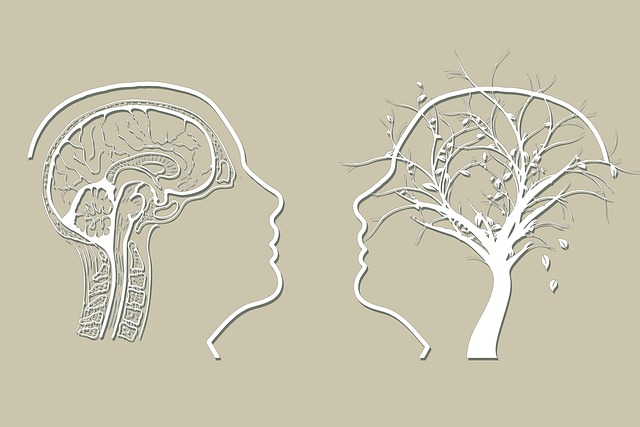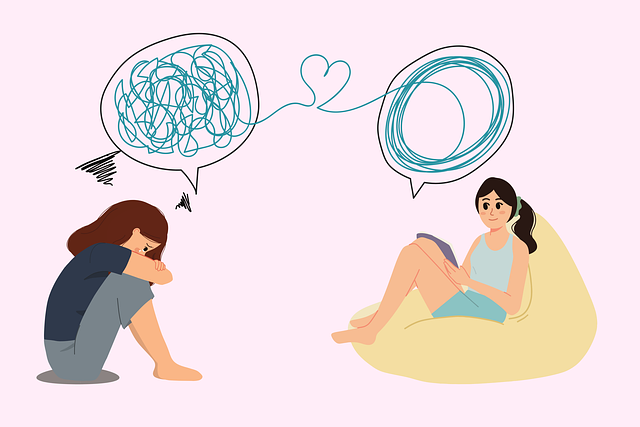Englewood Exposure and Response Prevention Therapy (EERP) combines exposure therapy with self-care techniques to empower individuals in managing anxiety, stress, and mental health. By gradually confronting fears, EERP builds resilience, fosters emotional intelligence, and promotes positive self-care practices like relaxation, sleep, and balanced diets. This method improves coping skills, enhances self-esteem, and ultimately leads to better mental wellness outcomes, making it an effective solution for burnout prevention and overall emotional well-being.
Self-care is an essential practice for maintaining overall well-being, yet many struggle to incorporate it into their daily routines. This article guides you through a comprehensive approach to enhancing self-care habits. We explore the benefits of self-nurturing and introduce effective strategies, including Englewood Exposure and Response Prevention Therapy, to overcome challenges. By understanding your unique needs, setting achievable goals, and adopting practical techniques, you can foster a healthier, more balanced lifestyle.
- Understanding Self-Care and Its Benefits
- The Role of Exposure and Response Prevention Therapy (Englewood) in Self-Care Improvement
- Practical Strategies for Integrating Self-Care into Daily Life
- Overcoming Barriers and Sustaining Healthy Habits
Understanding Self-Care and Its Benefits

Self-care is an essential practice for maintaining and enhancing mental wellness. It involves taking proactive steps to nurture your physical, emotional, and psychological well-being. By prioritizing self-care, individuals can reduce stress, improve mood, and boost their overall quality of life. This isn’t just about indulging in luxuries but rather incorporating sustainable habits that support long-term mental health.
Englewood Exposure and Response Prevention Therapy (EERP) is a therapeutic approach that encourages clients to face fears and challenges with a focus on self-care. EERP, often coupled with Compassion Cultivation Practices and Mental Health Education Programs Design, aids individuals in understanding their thoughts and behaviors, fostering resilience, and cultivating a deeper sense of self-compassion. These practices enable people to navigate life’s stressors more effectively, ultimately leading to improved mental wellness as discussed in our Mental Wellness Podcast Series Production.
The Role of Exposure and Response Prevention Therapy (Englewood) in Self-Care Improvement

Englewood’s Exposure and Response Prevention (ERP) Therapy is a powerful tool for improving self-care routines and enhancing mental wellness. This therapeutic approach focuses on helping individuals confront and manage their fears and anxieties in a structured, gradual manner. By gradually exposing oneself to stressful or anxiety-provoking situations, ERP enables individuals to develop coping skills and change their responses to these triggers.
The process involves learning to tolerate distress while engaging in activities that were previously avoided due to fear or anxiety. This therapy empowers people to take control of their emotions, build resilience, and boost their confidence. As a result, individuals can make positive changes to their self-care practices, fostering better mental health and overall well-being. ERP is particularly beneficial for those seeking to develop effective coping strategies and improve their quality of life through enhanced mental wellness coaching programs.
Practical Strategies for Integrating Self-Care into Daily Life

Incorporating self-care into your daily routine is a powerful tool for enhancing mental and emotional well-being, which can be especially beneficial in managing conditions like depression. Simple yet effective strategies include setting aside dedicated time for relaxation and activities that bring joy, such as engaging in hobbies or practicing mindfulness. Establishing a consistent sleep schedule and maintaining a balanced diet are also crucial components of self-care, as they lay the foundation for optimal mental health.
For those seeking structured guidance, Englewood Exposure and Response Prevention Therapy (EERP) offers a proven approach to addressing anxiety and depression. This therapy focuses on building emotional intelligence and resilience by gradually exposing individuals to feared situations while learning healthier coping mechanisms. By integrating EERP techniques into your self-care routine, you can empower yourself to manage stress and prevent relapse, fostering significant improvements in self-esteem and overall mental health.
Overcoming Barriers and Sustaining Healthy Habits

Overcoming barriers is a significant step in improving self-care practices and adopting healthier habits. Many individuals struggle to maintain consistent routines due to various challenges. These might include time constraints, work pressures, or even past traumas that hinder one’s ability to prioritize well-being. Englewood Exposure and Response Prevention Therapy (EERP) offers valuable tools to navigate these obstacles. EERP is an effective approach to emotional healing processes, helping individuals confront and manage their responses to distressing situations. By learning emotional regulation techniques, one can prevent burnout and maintain a sense of balance.
Sustaining healthy habits requires consistent effort and a deep understanding of personal needs. It’s about creating a lifestyle that supports overall well-being rather than just occasional self-care. Through EERP, individuals can develop strategies to overcome the barriers that once hindered their progress. This includes setting realistic goals, incorporating mindfulness practices, and fostering a positive mindset, all of which contribute to long-term success in burnout prevention and emotional regulation.
Self-care is not just a trend, but an essential practice for overall well-being. By understanding its significance and utilizing effective strategies like Englewood Exposure and Response Prevention Therapy, individuals can embark on a transformative journey towards self-improvement. Integrating practical self-care routines into daily life becomes manageable when facing challenges head-on and adopting sustainable habits. Remember that consistent effort and mindfulness are key to unlocking the profound benefits of enhanced self-care practices.














